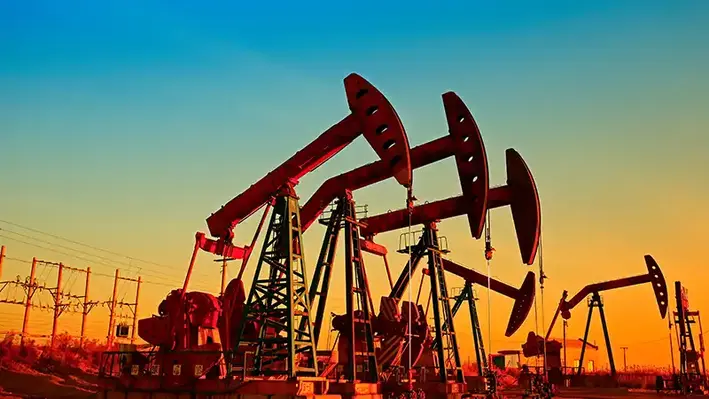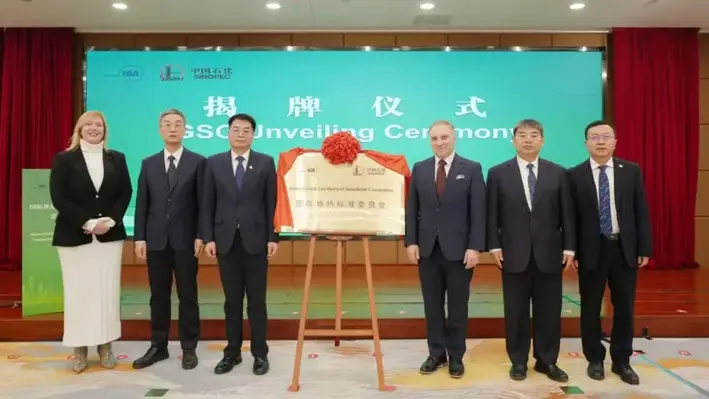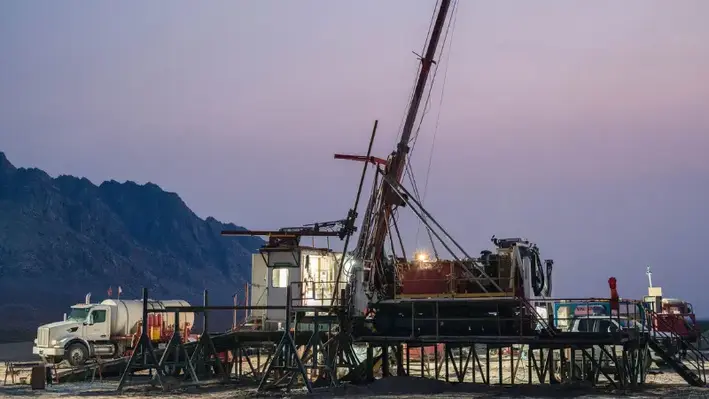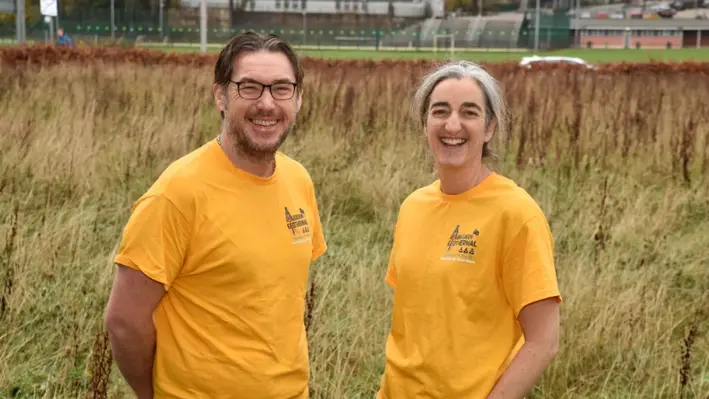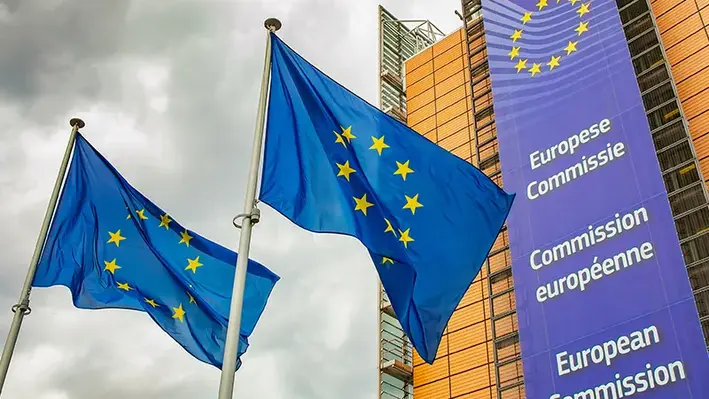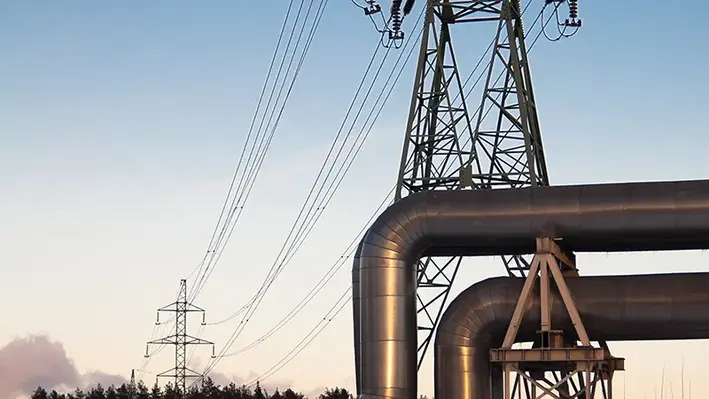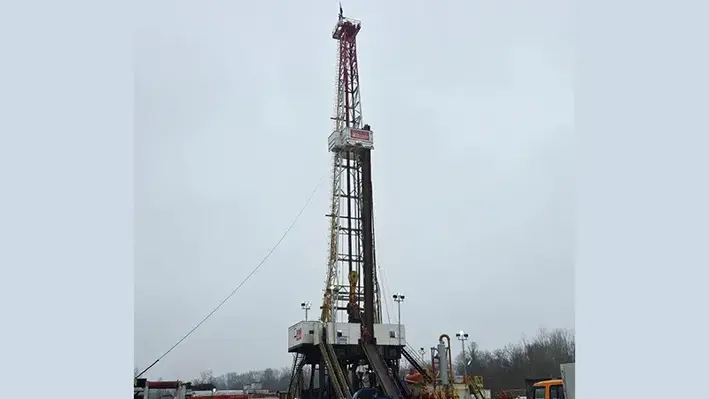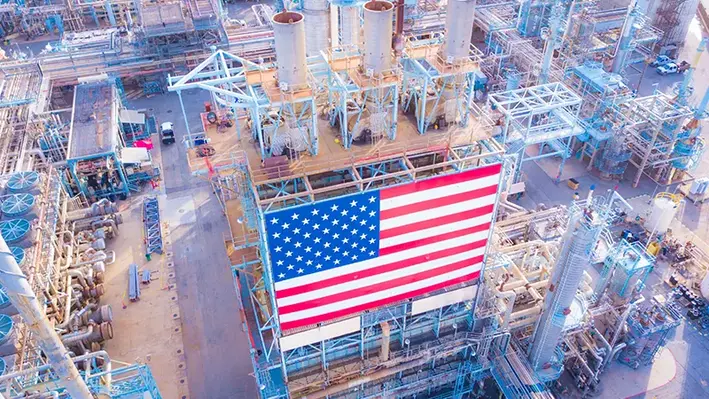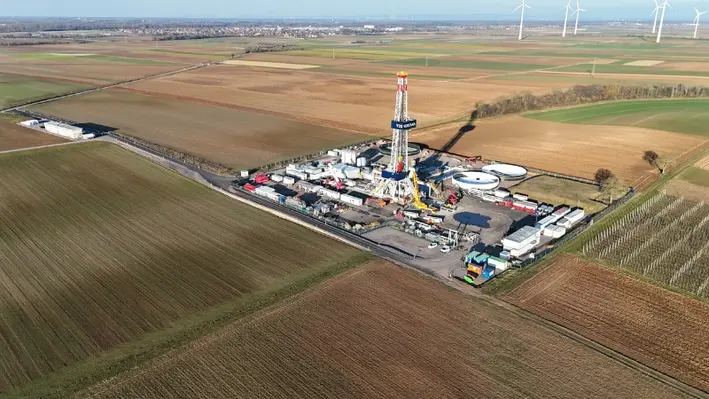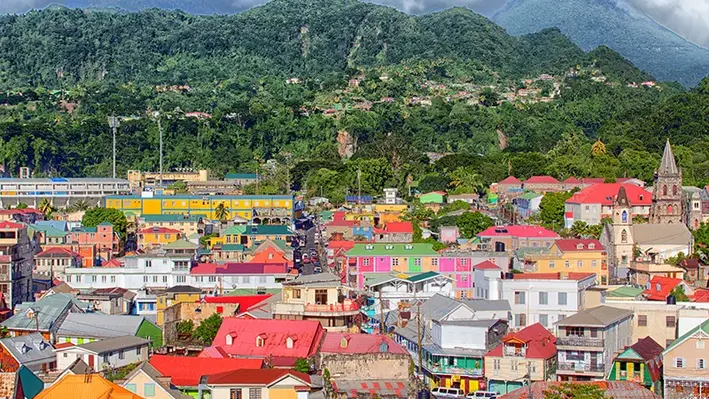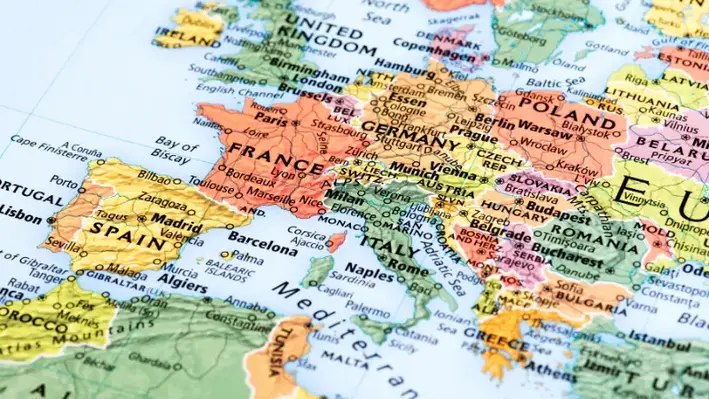Latest News
Latest News
- Date: 16th December 2025
The chief executive of Chevron Corp., the US oil major, has spoken of the company’s interest in the USA's growing geothermal sector, among other alternative and renewable energies.
The head of one of the world’s largest oil companies, Mike Wirth acknowledged his interest in everything from carbon capture to hydrogen, as well as geothermal, during a recent industry event.
Wirth was speaking at the recent WSJ CEO Council, and was cited in an article afterwards by the Wall Street Journal newspaper.
During the event, the Chevron CEO touched on various new renewable energy business opportunities, alongside plans to grow its traditional oil and gas activities.
Other major Big Oil corporations, including ExxonMobil, are also actively exploring new and alternative energy technology opportunities, including lithium.
Cited by the WSJ article, Wirth noted that geothermal offers “real promise” despite some of the sector’s drilling methods and technologies only being at an early stage.
According to the article, Wirth said Chevron hopes to leverage its experience “to advance and scale novel geothermal energy, which can potentially allow access to a widespread baseload, non-intermittent resource that can complement and add capacity to meet the world’s growing renewable-power demand.”
Interest in the geothermal energy sector in the USA has been broadly encouraged in recent months by the Trump administration, a keen champion of the nation’s oil and gas industry.
In the WSJ article, Wirth noted that all energy sources — from oil and gas, to coal, nuclear, as well as geothermal and other renewable alternatives — will be in focus against a backdrop of rising global energy demand.
“There’s no silver bullet, we need it all,” he said at the conference, cited by WSJ.
Other major industry players, including traditional drilling and technology service providers to the oil and gas sector, such as Baker Hughes and Saipem, have also expressed an interest in the potential of geothermal energy and are exploring early opportunities.
- Date: 16th December 2025
The International Geothermal Standard Committee (IGSC) was established last month in Beijing, marking a major milestone in global geothermal standardisation.
- Date: 15th December 2025
Maren Maras has officially commenced operations of two new geothermal power plants in Aydin, Türkiye, marking another significant milestone in the country’s renewable energy transition.
- Date: 12th December 2025
USA geothermal exploration company Zanskar has announced the discovery of ‘Big Blind’, the first commercial blind geothermal system in the US in over 30 years.
- Date: 10th December 2025
The Scottish university has secured a £1mn (US$1.3mn) public grant for a geothermal feasibility pilot study to unlock the potential lying under the ground.
- Date: 10th December 2025
More than 20 firms, agencies and organisations drawn from across Europe’s energy sector have teamed up to urge the European Commission (EC) to fast-track its geothermal plans.
The group— which includes Clean Air Task Force, Baker Hughes and OMV — has published a joint letter calling on the EC to ensure its forthcoming EU Action Plan on Geothermal Energy reflects the full spectrum of geothermal technologies, including next-generation high-temperature systems, that with investment, the group noted, could be capable of producing round-the-clock clean power and industrial heat at an affordable price.
The Commission is preparing to release the first EU Geothermal Action Plan in early 2026.
“A forward-looking Action Plan can help Europe lead in next-generation geothermal technologies that provide clean, firm heat and power,” said Alessia Virone, EU Affairs Director at Clean Air Task Force.
“But capturing full benefits of geothermal will require support for innovation, a stronger value chain, and efforts to reduce early-stage project risk.”
What the letter calls for:
The Plan should reflect full spectrum of geothermal technologies, including next-generation high-temperature systems that can supply clean firm electricity, support industrial decarbonisation, and improve the stability and reliability of electrical grids.
Field testing, commercialisation, and the establishment of targets or flagship projects that can accelerate deployment should be supported.
The EU geothermal value chain, including high-temperature tools, materials, services, and workforce, should be strengthened.
Calls for a workable EU risk-sharing facility that can unlock private capital and enable commercially financed next-generation geothermal projects by the early 2030s.
An EU stakeholder alliance should be created to guide implementation and ensure policy reflects real project experience.
In a statement, the Clean Air Tasforce also elaborated on why the topic matters: “As the EU looks to expand its clean energy options, geothermal remains an underused domestic opportunity, particularly advanced approaches such as superhot rock systems that tap into resources available deep in Earth’s crust.”
The signatories — spanning cleantech innovators, industry associations, public authorities, research institutions, and civil society — also include Baseload Capital, Energy Cities, Telura, Vallourec and PW Energy.
The group also includes prominent geothermal organisations such as the European Federation of Geologists and the European Geothermal Energy Council.
Other members of the coalition include AxioGeni, Canopus Drilling, Eaposys SA, Energy Institute Hrvoje Požar, Enna Geo, Future Cleantech Architects, GA Drilling, Geothermal Ukraine, Hephae Energy, SwissDGS GmbH, Turboden, Underground Ventures, and Zenon Energy Research.
“The moment to champion geothermal innovation is now,” the letter, addressed to EC President, Ursula von der Leyen, concludes.
“In a world where different regions are racing to secure technological primacy, there is no time to waste. The EU is well placed to become a leader in next-generation geothermal – now it must show a visionary outlook and put in place thoughtfully designed measures to translate this tacit opportunity into tangible benefits for EU industries and citizens.”
- Date: 8th December 2025
The European Geothermal Energy Council (EGEC) has called on European Union (EU) officials to prioritise geothermal in the wake of the planned phase out of Russia gas imports.
It comes after the EU agreed to end Russian gas imports by late 2027 as part of an effort to terminate its decades-long dependency on energy supplies by its neighbour.
Moscow was the EU's former top gas supplier prior to the invasion of Ukraine in 2022, but efforts have been made to diversify European energy sources since.
“Following on from the EU’s commitments to phase out energy imports from Russia, make energy affordable, boost industrial competitiveness, improve energy security and reduce greenhouse gas emissions, EGEC insists that the European Commission (EC) must present an investment-orientated strategy and action plan to accelerate the deployment of all geothermal energy solutions,” an EGEC statement read.
The Council called on the EC to publish a dedicated European geothermal strategy and action plan in the first quarter of 2026.It added that this echoes requests made by EU energy ministers and also by the European Parliament.
“Indeed, the European Commissioner for Energy and Housing, Dan Jørgensen, has already confirmed (on 14 March 2025) that the Commission will present ‘an action plan on geothermal energy’ before the end of March 2026,” the statement noted.
According to EGEC, the Commission’s proposal must include the following elements:
• An EU-wide target to reach 250 GW of geothermal capacity by 2040 covering all technologies. This will build on the 44 GW of installed capacity in the EU.
• A European Geothermal Charter, which codifies the 2040 target and launches the Geothermal Industrial Alliance to manage its delivery.
• Targeted European financial instruments to leverage private capital.
• Measures to make permitting processes more efficient and faster, as well as improving access to geological data.
• Sectoral or tripartite agreements with key energy consumers.
• Peer-to-peer guidance to help governments develop national and regional roadmaps to remove barriers, accelerate investments and build local supply chains.
• European instruments to support value chain development in local manufacturing and skilled professionals.
• The inclusion of geothermal energy as a central pillar of the EU’s Global Gateway and the Global Energy Transition Forum.
• Improvements to the collection and presentation of market data and statistics to enable better energy modelling.
EGEC has laid out all of its proposals in a new policy document entitled: The European geothermal strategy and action plan – making Europe competitive, secure and affordable.
- Date: 8th December 2025
In Croatia, research into the country’s geothermal potential continues with the start of the Zapresic GT-1 well, located near the Novi Dvori landfill in Zapresic, a town in Zagreb County, the local authority said in an update.
It forms the last of four drill locations as part of a national geothermal potential research project led by Croatian Hydrocarbons Agency (AZU).
AZU said in October that well site preparation was underway for the construction of the fourth and final well site for the drilling rig.
According to the Zapresic statement, previous research has already confirmed positive findings in Velika Gorica, Osijek and Vinkovci.
Zapresic is the next step in determining whether commercial geothermal deposits exist that are suitable for district heating needs, it noted.
"We have conducted detailed measurements and analyses at locations with geothermal potential, which have given us a good initial picture, but we can only obtain reliable data by going deeper,” said Martina Tuschl, Director of the Geothermal Energy Sector at AZU.
“The expertise of our team has been confirmed at the previous three locations where the wells have yielded positive results, and we are applying the same approach in Zapresic. Upon completion of the testing, we will have clear information about the actual geothermal potential of this area.”
She also explained that the targeted deposit is located at a depth of about 2,700 metres, where the temperature and flow of geothermal water will be measured, key parameters for assessing the deposit's economic viability.
The work at Zapresic is expected to continue until February 2026.
“This is an important moment for Zapresic,” according to the city’s Mayor Zeljko Turk.
“A project has begun that opens up the possibility of using our own source of clean energy and creating a modern, safe heating system. We believe in a positive outcome and look forward to the results that will show that our city can make a step forward towards a sustainable and long-term profitable solution for citizens, as well as the economy.”
Potential future uses of the geothermal energy in the area include the Falecnjak enterprise zone and a new planned city swimming pool.
- Date: 4th December 2025
Geothermal could enhance US energy security, but only if it is prioritised, according to The Atlantic Council, a Washington DC-based thinktank established in 1961.
In a new report, it notes that geothermal energy offers reliable, 24/7 clean power with low supply-chain risks, thereby enhancing overall energy security in the US.
The Atlantic Council also argues that with policy support and new drilling technologies, geothermal could expand beyond limited regions, which characterises the sector currently.
High upfront costs and slow deployment remain challenges, but its firm, domestic power makes it strategically valuable, the paper, written by Paul Stahle, a senior energy advisor and government relations expert, notes.
It also comes at a time of rising electricity demand in the US.
After nearly a decade of flat growth, the US Energy Information Administration projects that annual demand across the country will grow 2.4% in 2025 and 2.6% in 2026.
“Meeting that demand affordably poses a formidable challenge,” The Atlantic Council notes.
“Oil and gas markets are volatile, while renewables have intermittency challenges and vulnerable supply chains. In this environment, accelerating the development of geothermal energy could help reduce exposure to these risks.”
Compared to solar, wind, or battery storage, geothermal power relies relatively less on critical minerals like cobalt and lithium, it adds, and, unlike oil and gas generation, geothermal requires no fuel.
As a result, geothermal can provide round-the-clock baseload power with lower exposure to disruptions in global supply chains, the paper adds.
“By prioritising the rapid development of geothermal, policymakers could help the United States build a unique path to energy security — one that delivers reliable power 24/7, insulated from global hydrocarbon markets and vulnerable supply chains,” it concludes.
- Date: 3rd December 2025
Vulcan Energy has secured a comprehensive financing package to fully fund the construction and development of Phase One of the Lionheart lithium project in the Upper Rhine Valley.
- Date: 1st December 2025
Dominica is gearing up to commission its first geothermal power plant this month, according to a senior official from the Caribbean island state.
Finance Minister Dr. Irving McIntyre said the commissioning of the 10 MW plant in the Roseau Valley is set to begin during December, with commercial operations scheduled to start in March 2026.
Speaking to the nation’s Parliament, and cited by Dominca News Online, he called the project a milestone for Dominica’s renewable energy ambitions.
The country is also strengthening its transmission and distribution infrastructure to connect the plant as part of broader efforts to improve energy security and bring down costs on the island, drawing on loan funds from the World Bank.
“We are reminded that in addition to the government’s investment in geothermal power exploration and infrastructure,” he was quoted as saying by Dominica News Online, “government is investing in a first phase of high-voltage resilient transmission network which will connect the geothermal power plant.”
McIntyre said that these works are expected to be completed in time for the commercial operations of the geothermal power plant.
The launch will make Dominica the second member state of the Organisation of Eastern Caribbean States Commission (OECS) to commence geothermal power production.
Guadeloupe has been producing about 5% of its electricity from geothermal energy sources since 1986.
Other member states, such as St. Kitts and Nevis, are also advancing plans to tap into geothermal energy.
- Date: 1st December 2025
Project InnerSpace has announced the launch of GeoMap Europe, a geothermal mapping tool that unifies decades of data to reveal the continent’s vast potential.

